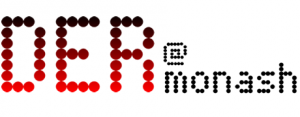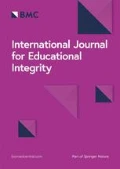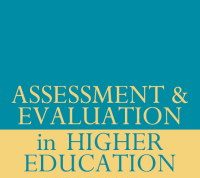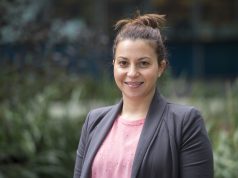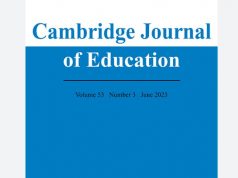Alongside parents and carers, the COVID lockdowns saw a variety of people stepping into the role of working as substitute classroom teachers.
Some parents who were detained by their own ‘WFH’ commitments, were quick to hire online virtual tutors to sit-in via Zoom and oversee their children’s remote schooling, and perhaps also provide additional ‘after school’ tuition.
A few affluent parents even went as far as hiring ‘private educators’ to oversee their children’s home-schooling in person, while others clubbed together to fund small ‘learning pods’ with one tutor stewarding a small group of students.
At the same time, millions of students were also being ‘taught’ online by the likes of Joe Wickes and other celebrity YouTubers, as well as consuming the video output of regular teachers whose online lessons went viral.
All told, many students came into contact with a wide range of other ‘teachers’ during their remote schooling. Tellingly, many of these extra-curricular services might well persist into how some families choose to engage with schooling in the future. If so, what might this mean for traditional schools and what we perceive as the ‘teaching profession?
Private tutoring as part of (post)pandemic parenting
With COVID remote schooling still fresh in the memories of most families, the online tutoring industry is looking to retain its presence in the minds (and wallets) of parents.
In Australia, companies such as Cluey Learning are marketing aggressively to maintain parental interest in paying for additional online tutoring services. Elsewhere, virtual tutoring is now a huge business across East Asia – with companies such as Yuanfudao reporting 400million users and valuations of $15billion.
In the US, companies such as Prenda are also pushing the idea of in-home ‘micro schools’. Here ‘Learning Guides’ can set up school in their homes and guide small groups of students for 20 hours a week.
Tellingly, these services are built around promises to make the most of innovative educational trends yet to be taken up in conventional schooling. For example, micro-school companies promise a dynamic combination of ‘high-tech’ and ‘high-touch’ schooling that is based around trends such as ‘mastery learning’ and ‘growth mindset’ – giving students access to popular online tools such as Khan Academy and Lexia.
All these companies are looking to build on parents’ recent experiences of remote schooling, and an associated reluctance to revert back solely to how things were before.
So what does this mean for education?
While private tutors, cramming schools and other forms of ‘after-school’ learning have a long history, the jolt of the pandemic along with the rise of technology platforms might well be leading to a substantial shift in what many parents now consider to be ‘schooling’ … as well as what they consider to be a ‘teacher’.
While this could be seen as a welcome challenge to the monopoly of mass schooling, there are a number of reasons for concern. Firstly, paying for the privilege of educational assistance raises obvious equity issues. For example, middle class parents splitting off into small learning pods can often result in racially and social segregated cliques.
Secondly, the rise of tutoring services leaves regular school teachers now facing the challenge of teaching content that many of their students might have already learnt before in a variety of different ways and with varying degrees of accuracy. Regular classroom teachers may now have to develop skills of ‘re-teaching’ and ‘de-teaching’ – working as best they can with the diversity of (mis)understandings that already exists in their classes.
Thirdly, as with many other types of ‘gig worker’, online tutors, coaches, mentors and guides all suffer from lack of job protection, labour rights, and all the other disadvantages of being in ‘precarious’ labour. This is a growing group of educational workers that need support from teaching unions, teacher educators and other aspects of the traditional ’educational establishment’
Taking private tutoring as an opportunity
Regardless of these concerns, it is worth thinking of ways in which the traditional education establishment can work with these new forms of teaching and teachers. In short, how might these new forms of ‘schooling’ also open up opportunities for the traditional education sector?
For example, those involved in teacher education and professional learning might develop ways of working with these new groups of tutors, mentors and coaches to support the development of their pedagogic skills and expertise.
Moreover, these ‘non-school’ forms of schooling might well prove to be sites where interesting different approaches to teaching and learning emerge that traditional schools and teachers can learn from and adopt.
Elsewhere, these services might have a role to play in redressing the much reported ‘learning losses’ incurred over the lockdown periods. For example, amid the massive educational recovery operation that many countries are going to be facing for the next few years, governments might contract these services to cater for low-income families who were disadvantaged during the lockdown.
Finally, if we are thinking radically, then perhaps the most interesting outcomes might be seen in the longer-term. Understandably, concerns are already being raised that the rise of private tutoring and micro-schooling services might undermine the public trust in the government school systems – ushering in an era of ‘hyper-competition’ between privatised customised products and unregulated school providers.
On this flipside, however, the establishment of these services might help stimulate interest in developing alternate non-profit services that extend this idea of local, community-based home schooling.
For example, we might see the establishment of platform cooperatives to provide low-cost online tutoring, or the establishment of non-profit ‘out-of-school’ learning pods and community ‘supportive learning centres’ that can be provided free-of-charge for those students that most need support.
These alternate forms of schooling need not involve high-profits, the exploitation of precarious labour, and undermining ideas of public education. Perhaps current interest in these services amongst middle-class families can be co-opted into broader rethinking of schooling as a genuine community-wide activity.
